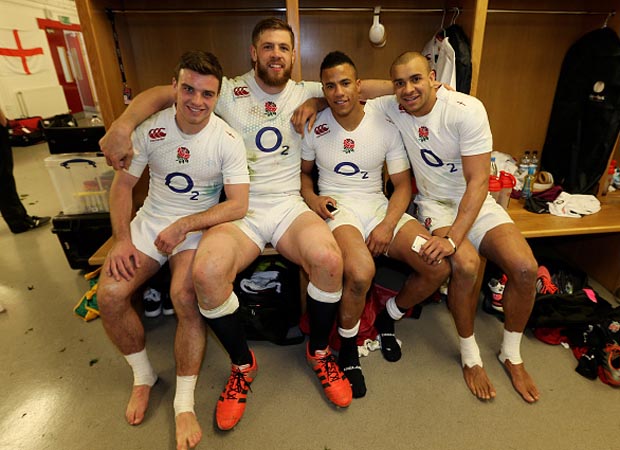 When Dave Attwood grounded the ball over the line at the Millennium Stadium late in the script for what appeared to be England's third try against Wales, the Bath contribution to England's win in the opening round of the Six Nations overflowed.
When Dave Attwood grounded the ball over the line at the Millennium Stadium late in the script for what appeared to be England's third try against Wales, the Bath contribution to England's win in the opening round of the Six Nations overflowed.
Attwood is, at 27, ‘The Daddy' of a Bath quartet of George Ford (21), Anthony Watson (20) and Jonathan Joseph (23), who were central to the best Six Nations win of head coach Stuart Lancaster's tenure. That the 6ft 7ins lock's crowning glory was eventually disallowed due to the TMO spotting an earlier obstruction by Nick Easter took none of the gloss from their outstanding collective influence.
Although, in the end, England had to make do with two tries, it was Bath backs who scored all 21 of the Red Rose points, with the touchdowns by Watson and Joseph embellished by Ford's three penalties and a conversion. And it was Attwood's power, and belligerence up front that helped serve up the quick ball they profited from.
Despite the disappointment of failing to score a debut England try, the brawny giant shrugged it off. “It was an interesting one. I got over the line and referee Jerome Garces was stood directly in front of me. It was eye-to-eye contact, and because he hadn't blown his whistle although I had the ball firmly planted on the line, I thought, ‘I'm not celebrating until you award it'. Then he awarded it and I started celebrating – and then they pulled it back. So, they let me think I had it, and then robbed me. Such is life.”
Attwood adds: “It would have been very nice for that to have counted, and there have been stern words between me and Nick Easter. He is my room-mate, and I think he was desperate not to have me bragging this week – and did everything to stop it!”
The banter stops when it comes to Attwood's assessment of what the Bath contingent brings to England's cause: “You can't help but be aware of the benefit you get from the consistency of having players from one club. There's definitely a tight balance, because you cannot choose players from one club at the expense of those from other clubs who are playing well. That has to be paramount.”
Attwood continues: “However, when you have guys who are all playing well at one club, you cannot escape the fact that those relationships worked on every week at Bath are beneficial. That's the way with George Ford, Kyle (Eastmond), JJ and Ant Watson, and while they will be running new patterns and incorporating other players in those plays and shapes, an element of what they do will be very ingrained. That's good for England because you don't get a lot of opportunity in this environment to build bridges.”
He says familiarity can be priceless. “Sometimes that split-second understanding is the difference between a move coming off and scoring in the corner, or it not quite working and you getting turned-over. So, having those strong, healthy relationships at club level can be really important for England.”
Strong club contingents have frequently been a core component in successful England sides, most recently with Wasps and Leicester Tigers influential in the 2003 World Cup-winning squad. There is a growing body of evidence that Bath are capable of taking over the mantle in 2015, with the likes of Henry Thomas, David Wilson (injured), Rob Webber, Kyle Eastmond and Semesa Rokoduguni also knocking on the selection door.
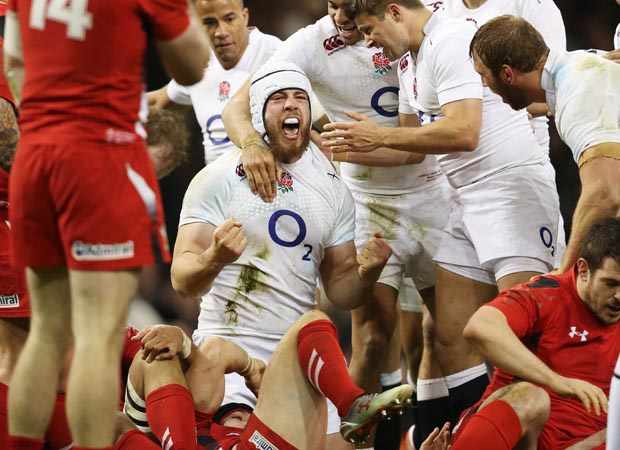 Attwood says there are significant tactical cross-overs between Bath and England: “The No.10 is obviously the play-maker, and George Ford's the play-maker a Bath. So, a large element of what goes on a Bath will be reflected with England just through the nature of who's playing. Some of the shapes are similar, but that's the same across the Premiership, and it doesn't take an awful lot to assimilate the attacking structure. The key decisions are those made by your 9s and 10s.” Attwood still finds it hard to accept how freakishly mature Ford is for a 21-year-old: “I know it, because I play with the guy, but every time his age comes up in conversation I say, ‘Really? Are you? Really?'. It pains me to see he's got a driving licence – it's very strange. He's an unbelievably experienced guy for such a youngster, and he's got a wise head on his shoulders. He makes good decisions, and he's incredibly professional. He gives us so much in the 10 department.”
Attwood says there are significant tactical cross-overs between Bath and England: “The No.10 is obviously the play-maker, and George Ford's the play-maker a Bath. So, a large element of what goes on a Bath will be reflected with England just through the nature of who's playing. Some of the shapes are similar, but that's the same across the Premiership, and it doesn't take an awful lot to assimilate the attacking structure. The key decisions are those made by your 9s and 10s.” Attwood still finds it hard to accept how freakishly mature Ford is for a 21-year-old: “I know it, because I play with the guy, but every time his age comes up in conversation I say, ‘Really? Are you? Really?'. It pains me to see he's got a driving licence – it's very strange. He's an unbelievably experienced guy for such a youngster, and he's got a wise head on his shoulders. He makes good decisions, and he's incredibly professional. He gives us so much in the 10 department.”
Attwood waxes lyrical about Ford's accomplishments: “He's got the skeleton key. It's great when you've got a 10 who is so confident in his decision-making, and talks confidently. He's very loud, and it's important on the field that your 10 is like that, because it opens things up. He's helped massively by guys either side of him, whether forwards, centres or back three. This allows George to stand in the front-line and pull the trigger – and that's something he does incredibly well.”
He also believes that Ford has provided a team template for how to deal with pressure.
“The way he gets on with the game if he makes mistakes is testament to how professional he is. When you get to the top level it is that element of professionalism that dictates whether you succeed, or fall by the wayside. You have to put setbacks on the shelf and get on with the next job – we are all very ‘next task' focused. It means that if we miss a kick at goal, give away a penalty, or overthrow a lineout, it does not affect what you do next.”
Attwood says that the collaborative nature of the England squad extends to the amount of tactical responsibility the coaches have handed to the players.
“Certainly the coaching structure is very encouraging of players to take ownership. When I sit down with Graham Rowntree, George Kruis, Geoff Parling, Graham Kitchener and Tom Croft and we talk about lineouts it's very much a melting pot rather than Graham saying this is what we're doing. There will be large elements of my input from Bath, and George's from Saracens. It's about trying to take advantage of everyone's expertise – we use influences from club level because that's where we get our experience.”
Attwood accepts that the competition for places within the England squad is intensifying, and he suggests that key components to who stakes their claim in the starting line-up over the coming months will be confidence, clarity of communication, and tactical nous.
He says: “I'm calling the lineouts at the moment, and I love the responsibility. It's something I get to do quite a lot at Bath, where I have a good working relationship with Stuart Hooper. There is an awful lot of benefit in having dialogue with your other second-row – I talk with Stuart throughout the whole game, and I did the same with George (Kruis) against Wales.”
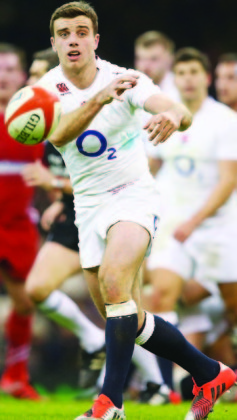
He adds, “You look at what's on, what the defence is doing, what you're seeing – you are looking for the same cues. George (Kruis) is pretty confident for a young guy, and you have to be. You cannot be quiet. If you have the opportunity to play for your country you need to represent yourself the same as someone who's been there for 50 caps.”
Attwood is also a believer that preparation makes perfect, and his appetite for homework appears to be insatiable: “The night before the Wales game I sat down and watched their last three fixtures against England. It gave me confidence about what we're doing a team – how we trained in the week, and the kind of structures we put in place – and an insight into what would come from Wales.”
He continues, “I watched those matches from start to finish even though I'd have watched them a dozen times throughout the week. However, that was usually in the clip-up forms – focusing on every line-out, every scrum, and every attacking breakdown. It's not very often you get to see the whole game, the whole ebb and flow of it, pressure that's put on, and how close is. Usually, you can pick something up from the bigger picture.”
Attwood explains: “It was the first time I'd played at the Millennium Stadium, so I was taking every opportunity to glean any knowledge that would help me on the night. It gave me an element of quiet confidence about our preparation, and that if we stuck to the plan that it would go well for us – and that's what happened.”
After being a bench-man in last season's Six Nations and failing to make the starting 23 for all but the first of the three summer tour Tests of New Zealand, Attwood has now enjoyed a six match starting run in the No.4 jersey.
Since coming off the bench to make his debut against New Zealand in 2010 he says he has been champing at the bit: “It's everyone's dream, and something I'd been yearning for since I first got to wear this white shirt. It's a great feeling to be playing on a regular basis – but, if anything, it's more pressured because the challenge is to keep playing well.”
Attwood elaborates: “If you're not in the limelight and you have a bad game it doesn't matter as much because you are still trying to climb up. It's about trying to move forward even when the shirt is yours. Take George Kruis at the weekend – he's straight into the side, puts in an unbelievable performance and is one of our best players – but before the injuries he might not have had an opportunity to play in this tournament.”
He concludes, “We've got tremendous strength-in-depth, so it's rewarding to get a run of games – but the pressure is on to keep the shirt.”
Courtney Lawes and Joe Launchbury are missing from England's second row through injury, but Attwood will take some shifting, not just because of the collective strength that Bath have brought to the England cause, but due to a burgeoning individual reputation as the big engine in the England front five.



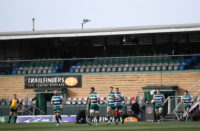
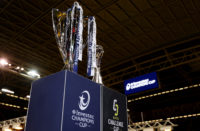























Pingback: Public Health Degree in Africa